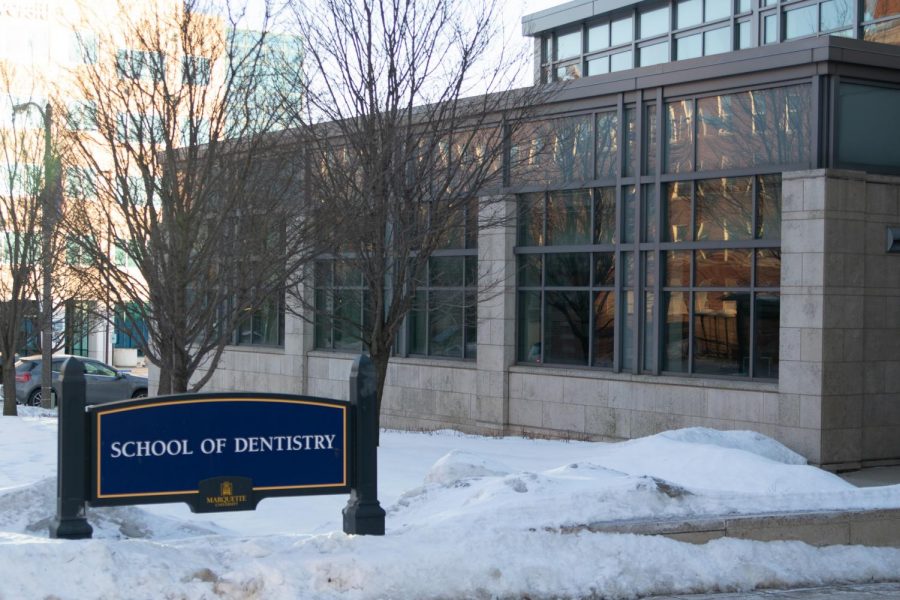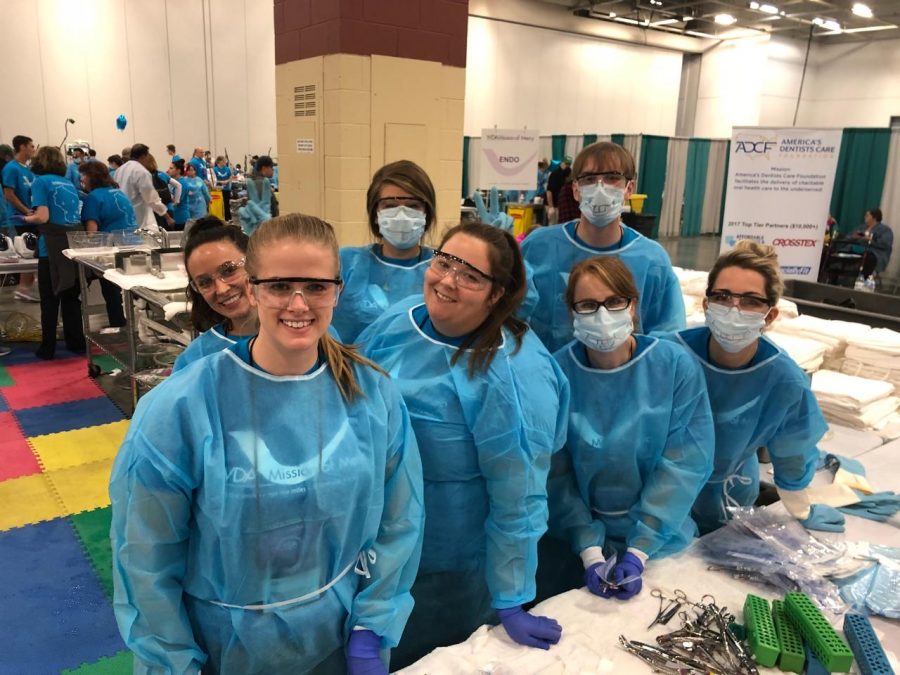
As Marquette students headed to winter break in December, the State Building Commission voted to grant Marshfield Clinic, a Wisconsin-based health care system, $10 million to start what was initially believed to be a rural dental outreach facility. But now, it is being billed as a dental school, drawing criticism from Marquette and other initial supporters.
Among the original backers of the legislation, the Marquette University School of Dentistry agreed with Marshfield’s plan for the facility to house post-baccalaureate and post-graduate programs — programs not currently offered at Marquette — said MUSOD Dean William Lobb.
Marshfield’s reasoning for the facility was to “support the training of students and residents in communities where there are documented shortages of dentists,” according to a letter sent to justify the request for the state funds.
Marshfield had also secured a separate $10 million donation from the Security Health Plan of Wisconsin for the estimated $24 million cost of the facility, previous to requesting the grant.
But by the time Marshfield was awarded the money in a 6-2 vote, MUSOD and dental agencies like the Wisconsin Dental Association backed off their initial support when they caught wind of the real focus of Marshfield’s plan: to build the second dental school in Wisconsin.
A Marshfield Clinic official or spokesperson could not be reached by press time. However, a memo sent by Marshfield Clinic’s Division of Education explaining how the outreach facility would work states: “although Marshfield Clinic has performed a feasibility study around a dental school, the Clinic as a corporate entity has not made a decision to build or start a school.”
Gene Shoemaker, the president of the WDA, likened Marshfield’s plans about getting the state funds to the infamous “Trojan horse” strategy. He didn’t agree with how Marshfield went about pursuing the state funds.
“From the beginning, Marshfield took on a lone ranger persona,” Shoemaker said. “They worked closely with a few legislators and got the process all ready to go. It’s very frustrating to see it go through with little public and dental community input.”
According to Rana Altenburg, vice president of Marquette’s Office of Public Affairs, Marquette felt the same about the process — bothered that there was no public hearing to decide on the funds.
But Marquette’s real problem lies with the proposed Marshfield dental school competing for dwindling state funds, Lobb said. The state’s budget deficit has reduced the amount of funding Marquette receives, he said.
“A second dental school in the state would likely put added pressure on the state budget,” Lobb said.
The dispersal of state funds between the two could also weaken both schools and existing programs, he said.
“We feel that if the state is going to invest in dental education, it should invest in their established partner,” Lobb said.
Lobb does not believe a second school would cause a drop-off in Marquette applicants.
With the funds already released, there is little that can be done in terms of preventing the building of a second dental school. But Shoemaker believes it could be a much longer process.
“It could take several years for the Marshfield school to open,” Shoemaker said. “Accreditation is a big obstacle, as well as recruiting faculty. Another reason why the funds would better be directed toward Marquette, which is already a very well established program.”




